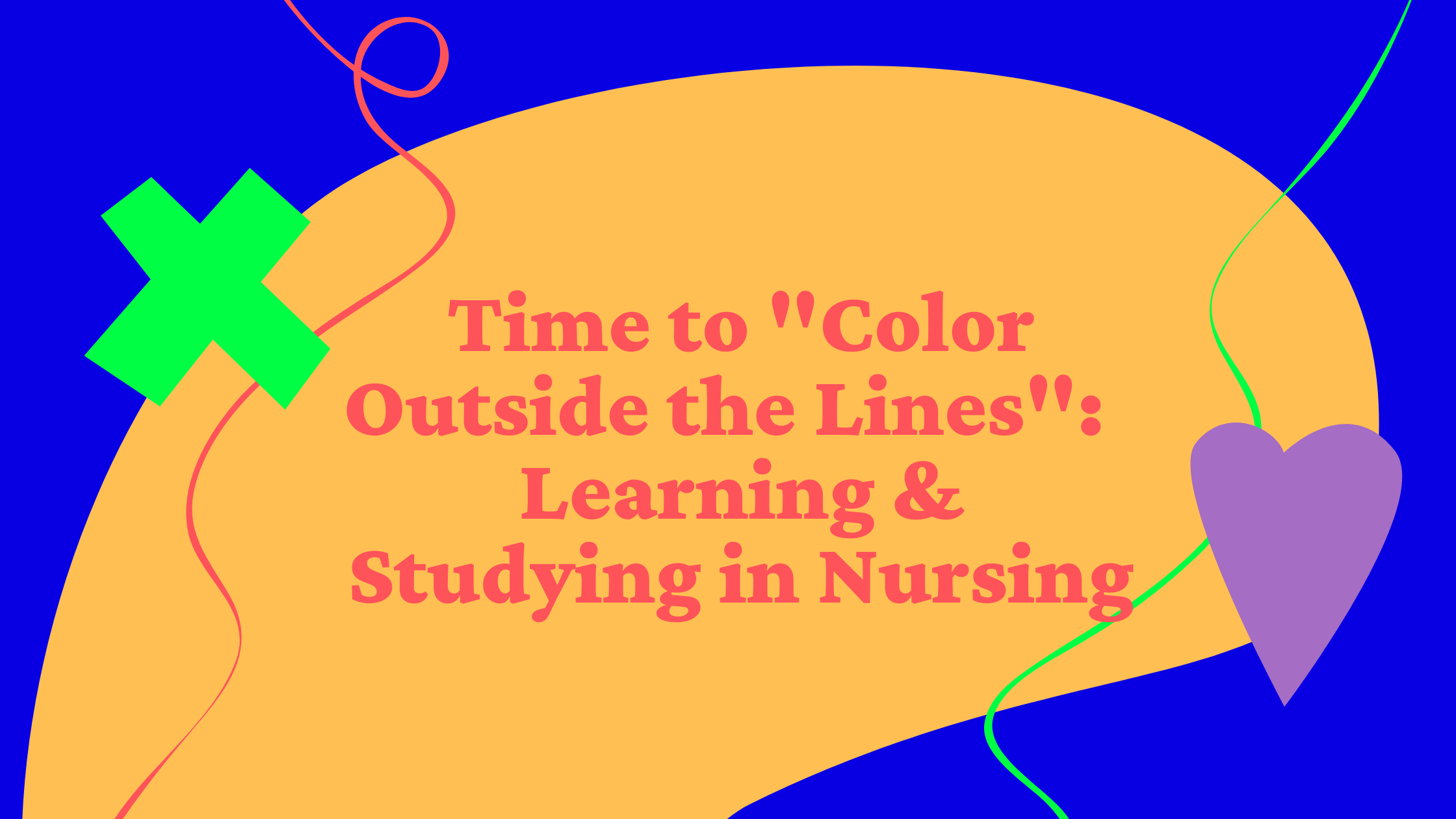Time to “Color Outside the Lines”: Learning and Studying in Nursing - sponsored by Picmonic
Many people would describe going to nursing school as one of the most challenging endeavors in their life. Nursing school during a pandemic only exacerbates that feeling for many. One of the most challenging aspects of nursing school is figuring out how to retain the vast amount of information required to succeed in your course and clinical work and eventual practice as a licensed nurse.
As a current graduate student pursuing a master of science focused in nursing education, my studies convince me that we can expand how we help students learn and retain information. The word studying doesn’t exactly inspire excitement and motivation in many students; it certainly doesn’t for me, even as an adjunct faculty member. I think much of this is because we have been trained and conditioned to believe that there are limited (and let’s face it, dry and dull) ways to study. The simple truth is that educators and students should b empowered to be creative in their approach to teaching and learning.
The World Health Organization (WHO) proclaimed 2020 the international year of the nurse and midwife. Not only is this a time for highlighting the nursing profession, but it also an opportunity to imagine and pursue new ways of doing things in nursing practice and education. 2020 is the year for nurses to “think outside the box” and “color outside the lines” a bit.
One way to make studying less boring is to incorporate to embrace the many options that modern technology and the visual arts offer us. These ideas aren’t novel. Peer-reviewed literature1 has remarked the benefits of infusing the visual arts into teaching and learning in nursing, citing increased recall and critical thinking. Further, the term “graphic medicine” has been coined to describe the use of cartoon graphics with health information and education.
The great news is that, even if you feel that you aren’t incredibly creative or artistic, there are already resources like Picmonic to help you approach studying creatively. Here are four other resources to that you can use in tandem with Picmonic and your school-provided resources to add creativity to your studying.
This is an excellent paper resource/book that uses graphics and memory aids to help you retain content.
Pinterest
This site is great to help you find visual content to help you study and learn new content. You can enter a variety of search terms to find content specific to nursing and nursing students.
Youtube
We all use it, but many have yet to embrace this site a tool for studying. This site combines audio and visual aspects that can help you understand complex concepts from a fresh perspective.
Podcasts
Podcasts are an excellent resource for folks who benefit from audio content and from being able to re-listen to information. Some podcasts focus on NCLEX-prep and Nursing School studying skills.
Great Examples of educational podcasts are the FreshRN Podcast and the Straight A Nursing Podcast.
These resources can help diversify the way you study. Some individuals may find that using a variety of resources helps them remain engaged in learning. Like Picmonic and the others listed, always remember to utilize these resources to complement your school provided resources and not to completely replace them. Wherever possible, communicate with your educators and mentors for ways to improve your studying and learning skills. I hope these ideas will help inspire you to be creative in studying for nursing school. Happy Nursing!
Disclosure: This post was sponsored by Picmonic.
References
1. Elhammoumi C, Kellam B. Art Images in Holistic Nursing Education. Religions (Basel). 2017;8(6):103. doi:10.3390/rel8060103




